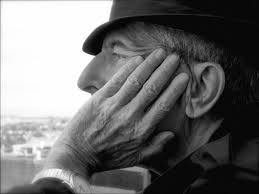I don't know anything about this site, except that a few writers I know say they have made $ posting their books in a serial fashion here: Radish Fiction.
Check it out and see what you think:
https://radishfiction.com/writer.html
Can you write serially? I have in the past, and it was fun, but I've gotten so skittish about deadlines these days. I think I'd have to have a story that "wrote itself" the way some blessedly do. Or I suppose write the whole book first, and then just release it chapter by chapter.
Alicia
Tuesday, October 23, 2018
Sunday, October 21, 2018
Voice suggestions?
I'm going to be doing a course on Voice in fiction writing.
Let's talk a bit about "voice".
This is really hard to teach-- it's kind of vague, and yet deeply individual.
Alicia
Let's talk a bit about "voice".
- What does it mean to you?
- What would you say are the elements of voice in fiction? (that is... like sentences, word choice, attitude, distance, viewpoint, whatever).
- Have you read manuscripts and book and stories that didn't have much voice? What was the effect? (Examples from big bestsellers who won't be harmed by our using it as example.:)
- How would you characterize your voice-- three adjectives maybe? (Ex. Spare, stark, precise./ Lush, over-the-top, poetic./ Subversive, ironic, clever.)
- Do you work on your voice as you draft, or do you go with what comes naturally?
- Can you "revise in" your voice, or do you stay with what your voice comes out as in your first draft?
- Have you written passages or scenes where you thought you didn't have a voice?
- Now let's say I want to ask people to characterize their voice using some kind of metaphor or analogy, like "if your voice was a food, what would it be?" "Is there a song or musician who sounds like your voice?"
- Any great thoughts about voice I can steal (with attribution)?
This is really hard to teach-- it's kind of vague, and yet deeply individual.
Alicia
Tuesday, October 16, 2018
I'm going to work through some items which were lost in comment moderation limbo:
From Adrian:
From Adrian:
Recently, I've been noticing how much of television drama starts with the effects and most of the story involves the revelations of the (often surprising) causes of those effects. The easiest example of this is the police procedural. We open with a dead body (the effect), and the story centers on the detective figuring out who killed them and way (the cause of the death). Of course, there's a framing story with a more traditional cause-then-effect structure: The detective finds a clue (cause) which leads to a witness (effect). And the witness provides a bit of information (cause) that leads another clue . Et cetera. But it's not just mysteries that start with effects and work backwards to the causes. I just watched a new ensemble TV drama that started with an inciting incident that caused the rest of the cast to wonder why it happened, which leads them to wondering about their own situations and relationships (effects). Most of on Three Acts: Three "Things' That Can Increase the Coherence of Your Conflict
I just saw a film-- Bad Times at El Royale-- which made me think of what you mentioned about effect first, then cause. In the late 1960s, four people show up at a derelict Lake Tahoe hotel (literally half in Nevada, half in California-- I've been at the model for this... it's been closed for a long time, but used to be a Hollywood and mob hangout).
There's just one person working there, a young shy man who handles all the jobs of the hotel.
There's a vacuum cleaner salesman with a fake southern accent and a lot of casual racism and bonhomie.
There's a Catholic priest who is really slow at answering questions like "where is your parish?" and "what is your name?"
There's an African-American singer (the great Cynthia Erivo, who is actually British) who arrives with two big bedrolls with those egg-shell foam rubber mattress. (She's going to use them to soundproof her room so that she can rehearse.)
There's a foulmouthed hippie chick in fringed leather jacket, who let's just say is not into hippie peace and love. Very soon she is seen to carry a girl into her room and tie her to a chair-- kidnapping.
Each one immediately seems suspicious-- why are they here?
And the film unfolds with slow revelation, with each contradiction in character being explained-- why they're here, what they want, where they came from.
So even as the film moves forward and they interact, it also moves from the "effect" (each of them arriving at the hotel) back to the cause (what event caused them to come here).
The only one who has a really straightforward reason is Darlene, the singer (she's got a singing gig in Reno, and so wants to prepare),
The back and forth and backforth again kind of slows down the pacing, but this is a "noir film", so that slower pace does build suspense.
Anyway, as I was watching, i thought-- this is what Adrian meant!
Alicia
|
Monday, October 15, 2018
Moody Leonard Cohen
 |
| Leonard Cohen The Street. Click to hear the song. |
Leonard Cohen died November 7, 2016.
Here's a lyric that sticks in my mind--
I know the burden’s heavy
As you wheel it through the night
Some people say it’s empty
But that don’t mean it’s light
Alicia
Friday, October 12, 2018
Tackling the questions-- Ellen
I'm going through the old comments I missed and trying to answer the questions-
I recall your article on 'Stone's Fall' by Iain Pears. One of those 'hard to put down' books. I must admit I found myself absent-mindedly copying his style in some, not all, of my chapters. I'm not a fan of a writer who babbles on about other character's past, but he didn't babble, he entertained. His writing, however, in the third person was awful, but maybe it was an author of the same name.
Have you ever found yourself subconsciously copying another author's style?
Ellen Dudley.
I didn't think so! But then I re-read the Narnia series (to which I'd been addicted in childhood), and thought, good grief, I copied CS Lewis's style! (At least, you know, I steal from the best.)
I think just like some people can do vocal impressions, some writers can really soak up another writer's style and unconsciously ape it. I don't mean plagiarism-- not the copying of sentences or ideas. With me and old CS, it's things like parenthetical asides (like this!), and ending a sentence on a lilting syllable that makes it sound ironic.
What about you? What do you "hear" in your own style that "sounds like" someone else?
Alicia
I recall your article on 'Stone's Fall' by Iain Pears. One of those 'hard to put down' books. I must admit I found myself absent-mindedly copying his style in some, not all, of my chapters. I'm not a fan of a writer who babbles on about other character's past, but he didn't babble, he entertained. His writing, however, in the third person was awful, but maybe it was an author of the same name.
Have you ever found yourself subconsciously copying another author's style?
Ellen Dudley.
I didn't think so! But then I re-read the Narnia series (to which I'd been addicted in childhood), and thought, good grief, I copied CS Lewis's style! (At least, you know, I steal from the best.)
I think just like some people can do vocal impressions, some writers can really soak up another writer's style and unconsciously ape it. I don't mean plagiarism-- not the copying of sentences or ideas. With me and old CS, it's things like parenthetical asides (like this!), and ending a sentence on a lilting syllable that makes it sound ironic.
What about you? What do you "hear" in your own style that "sounds like" someone else?
Alicia
Lost comments
Sorry, I had the comment settings set wrong, so any real comments got lost in the viagra spam!
It's really hard to believe that anyone would buy viagra because of some spammy comment on a blog. I think though that the bots or whoever post those comments get paid by the link, whether or not anyone clicks on them.
Anyway, I'll fore-ground the comments and questions when I get back from my WALK. (New resolution. Walk every morning. Please ignore the fact that it is not currently morning anymore.)
Adrian, I'll answer those questions you had!
Alicia
It's really hard to believe that anyone would buy viagra because of some spammy comment on a blog. I think though that the bots or whoever post those comments get paid by the link, whether or not anyone clicks on them.
Anyway, I'll fore-ground the comments and questions when I get back from my WALK. (New resolution. Walk every morning. Please ignore the fact that it is not currently morning anymore.)
Adrian, I'll answer those questions you had!
Alicia
Subscribe to:
Posts (Atom)








